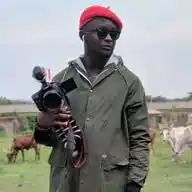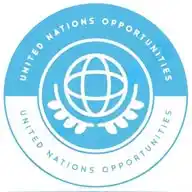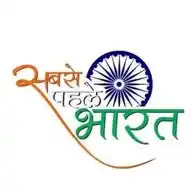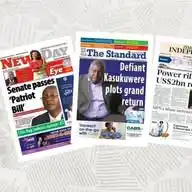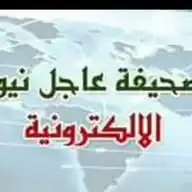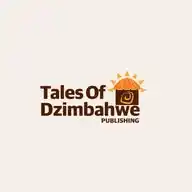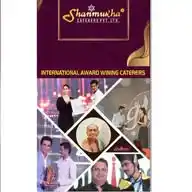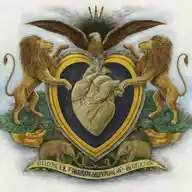
History Of Zimbabwe Myths & Truths Villaedge
120 subscribers
About History Of Zimbabwe Myths & Truths Villaedge
🇿🇼 *Welcome to the History of Zimbabwe Myths and Truths Villaedge!* 🇿🇼 Hosted by *Humwe Eden* and *Energio Holdings Pvt Ltd*. Our mission is to spread factual, mythical, and historical stories from diverse African perspectives, helping Africans reconnect with their identity. Join us as we explore Zimbabwe's rich heritage, preserving the myths and truths that shaped our nation. 📧: [email protected] 🌐: Join us on Facebook! (https://www.facebook.com/profile.php?id=100068633130312&mibextid=ZbWKwL) Our Whatsapp Group: https://chat.whatsapp.com/Hb01mf4Q7O5JaeeWmdiD6b
Similar Channels
Swipe to see more
Posts

https://chat.whatsapp.com/Hb01mf4Q7O5JaeeWmdiD6b *History of Zimbabwe Myths and Truths Villaedge* 🇿🇼🇿🇼🇿🇼🇿🇼🇿🇼🇿🇼🇿🇼🇿🇼🇿🇼🇿🇼🇿🇼🇿🇼 *AFRICA DAY 2025: Revisiting Our History, Shaping Our Future* So here’s something interesting—today, May 25th, is Africa Day. A big deal, right? Well... not everywhere. Surprisingly, only 9 African countries (yes, including Zimbabwe) treat it as a public holiday. Most of the continent just keeps it moving like it’s any other day. But why is that? Let’s rewind. *Back to 1963 – What’s the Deal with the “32”?* On this day 62 years ago, 32 African countries gathered in Addis Ababa to form the Organisation of African Unity (OAU)—the early version of today’s African Union. You might ask, “Why only 32?” Well, most African countries hadn’t gained independence yet. The 32 were the trailblazers—fresh out of colonial rule, fired up, and ready to push the rest of the continent towards freedom. That moment was about more than just flags and borders. It was a statement: *“We’re done with division. Let’s build something together.”* *Holiday or Not? Let’s Talk Realities* Now back to that holiday question. Why only 9 countries? Here are some real-talk reasons: * Everyone has their own independence day—Africa Day feels a bit... “extra” for some. * Governments count holidays like coins—too many days off isn’t seen as good for business. * Some just don't feel the vibe yet—Africa Day hasn’t become part of popular culture in many places. Still, the spirit of the day lives on—in cultural events, radio shows, online spaces, and community gatherings. *This Year’s Theme Hits Deep* The 2025 theme is: *“Revisiting Our History, Shaping Our Future”* It’s like the AU is saying: *“Before we chase the future, let’s make sure we understand where we’ve been.”* Not just the pain of colonialism—but the wisdom in our stories, the beauty in our cultures, and the lessons we never got to fully teach ourselves. *So... What Could Africa Day Actually Be?* Here’s a thought—Africa Day doesn’t need to be just a public holiday. It can be a creative outlet. A memory bank. A mirror. Imagine: * A dance-off featuring traditional dances from 10 countries. * Street murals that retell African myths and history. * Podcasts where youth talk to elders about identity and dreams. * A meme fest. A food fair. A flash fiction series. *Whatever brings our African-ness alive.* So yeah. It’s Africa Day. Some will march, others will scroll past it. But maybe you’re the one who’ll help make it stick. Not just for show. But for meaning. For memory. For movement. #AfricaDay2025 #RevisitingOurHistory #ShapingOurFuture 🇿🇼🇿🇼🇿🇼🇿🇼🇿🇼🇿🇼🇿🇼🇿🇼🇿🇼🇿🇼🇿🇼🇿🇼🇿🇼🇿🇼🇿🇼🇿🇼🇿🇼🇿🇼🇿🇼🇿🇼🇿🇼🇿🇼🇿🇼🇿🇼 *Join Us* https://chat.whatsapp.com/Hb01mf4Q7O5JaeeWmdiD6b
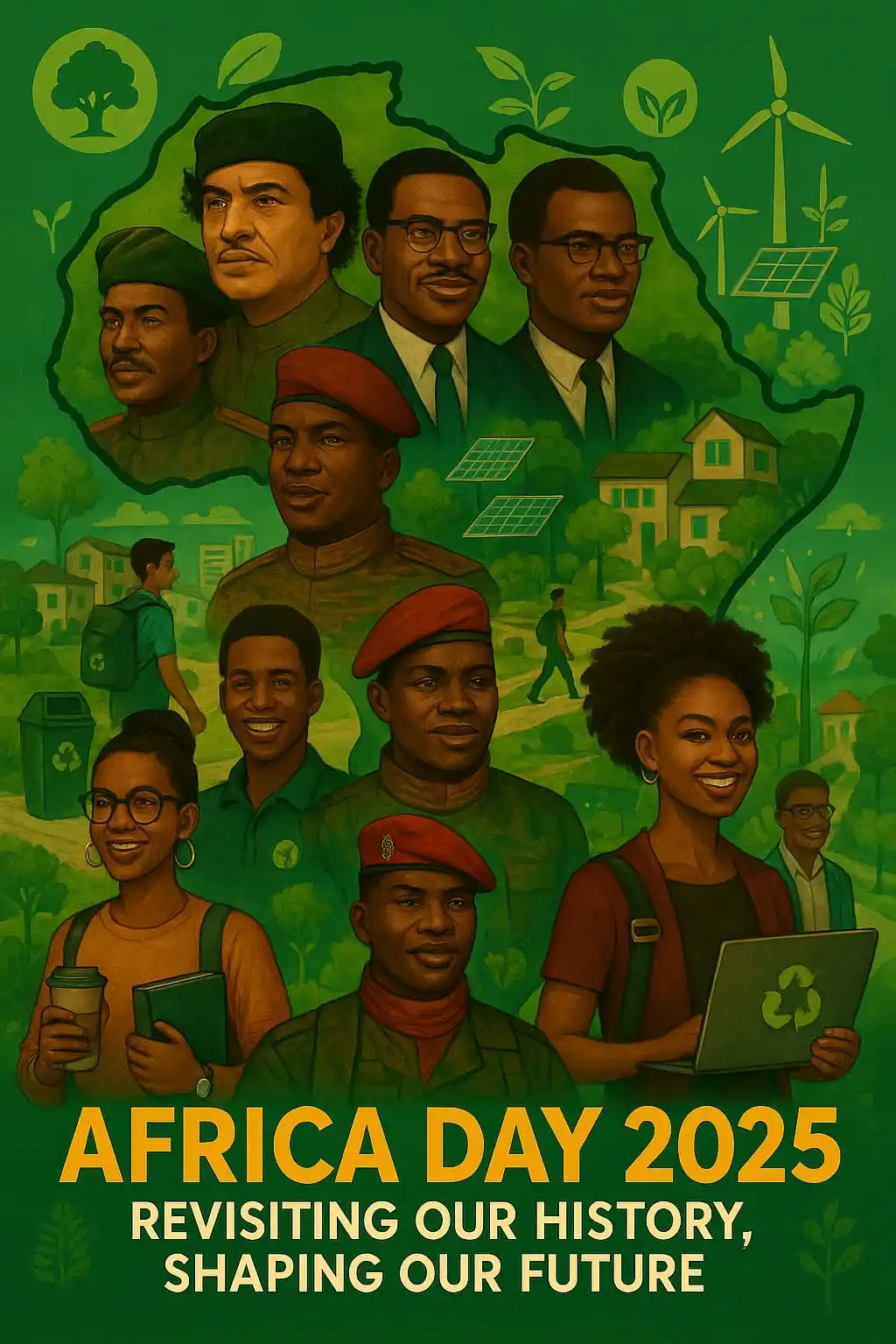

🇺🇸 *Trump Administration Exposes USAID: Not an Aid Organization?* 🇿🇼 🇿🇼🇿🇼🇿🇼🇿🇼🇿🇼🇿🇼🇿🇼🇿🇼🇿🇼🇿🇼🇿🇼🇿🇼🇿🇼🇿🇼🇿🇼 🇿🇼 *History of Zimbabwe Myths and Truths Villaedge* 🇿🇼 https://chat.whatsapp.com/Hb01mf4Q7O5JaeeWmdiD6b *During the Trump era, the U.S. Department of Government Efficiency made a bold assertion:* _USAID is not an aid organization but a tool for advancing U.S. geopolitical interests. While many believed USAID’s primary mission was humanitarian assistance, insiders claimed it was a vehicle for economic leverage, political influence, and soft power expansion._ *For Africa-including Zimbabwe-this raises critical questions:* * Is foreign aid truly about development, or is it a form of control? * How does USAID funding shape governance, policies, and even elections? * *Can Africa achieve true sovereignty while depending on Western aid?* As the world re-evaluates foreign assistance, should Zimbabwe and the rest of Africa move towards self-reliance and Pan-African development models rather than reliance on external “aid” with hidden strings? *Let’s discuss* 🇿🇼🔥 #HistoryOfZimbabwe #ForeignAid #NeoColonialism 🇿🇼🇿🇼🇿🇼🇿🇼🇿🇼🇿🇼🇿🇼🇿🇼🇿🇼🇿🇼🇿🇼🇿🇼🇿🇼🇿🇼🇿🇼🇿🇼

*🗳️ POLL: Are SADC leaders:*

🇿🇼 🔥 *"Land Reform in SADC: Namibia’s Stolen Soil & the Ghosts of Genocide"* 🌍 🇿🇼 🇿🇼🇿🇼🇿🇼🇿🇼🇿🇼🇿🇼🇿🇼🇿🇼🇿🇼🇿🇼🇿🇼🇿🇼🇿🇼🇿🇼🇿🇼 🇿🇼 *History of Zimbabwe Myths and Truths Villaedge* 🇿🇼 https://chat.whatsapp.com/Hb01mf4Q7O5JaeeWmdiD6b *The Colonial Lie: “Empty Land for Civilized Hands”* Germany’s 1904–1908 *Herero-Nama genocide* wasn’t just about killing people—it was about stealing land. Over *80% of Herero and 50% of Nama* were exterminated to make space for German settlers. Today, descendants of those settlers (6% of Namibia’s population) still control *70% of prime farmland* , while Black Namibians struggle on barren “communal land.” *How It Happened: From Genocide to Land Grabs* 1. *Extermination Orders*: German General Lothar von Trotha declared, *“Any Herero found within German borders will be shot”* . Survivors were forced into concentration camps or enslaved. 2. *Scientific Brutality*: Skulls of victims were sent to Germany for racist “research” . 3. *Land Redistribution*: Post-genocide, stolen land was sold cheaply to German settlers—titles still held today. *Modern-Day Apartheid: 21st-Century Land Injustice* - *Food Insecurity*: 80% of Namibia’s food is **imported** despite fertile land being monopolized by white farmers. - *Failed Reforms*: Namibia’s land redistribution program (target: 15M hectares by 2020) acquired only 3M hectares, often bought by elites and foreign billionaires. - *German “Reconciliation”*: Germany pledged €1.1B in “aid” but refuses *reparations*, calling it a “gesture” . *Why This Matters for Zimbabwe & SADC* Namibia’s struggle mirrors Zimbabwe’s Fast-Track Land Reform: both expose how colonial theft fuels modern inequality. Germany’s evasion of accountability sets a dangerous precedent for *all former colonies* fighting for justice. *Call to Action: Break the Silence* - *Share This*: Tag someone who needs to know #LandBack isn’t just a slogan—it’s survival. - *Discuss*: Should SADC nations demand *reparations, not aid*, from former colonizers? *Land isn’t just soil—it’s memory, dignity, and future. Let’s reclaim it.* ✊🏾 *💬 COMMENT*: How would YOU fix land reform and how? #LandBack #SADCTruths #DecolonizeAfrica *Follow @RozviVillaedge for raw history, not propaganda.* 🌱 https://x.com/RozviVillaedge?t=Xct-Uwpjjykv368RICAH_g&s=09 🇿🇼🇿🇼🇿🇼🇿🇼🇿🇼🇿🇼🇿🇼🇿🇼🇿🇼🇿🇼🇿🇼🇿🇼🇿🇼🇿🇼🇿🇼🇿🇼

🇿🇼 *🌍 "Land: Africa’s ‘First Wife’—Why Liberation Movements Fought for Soil, Not Ballots"* 🇿🇼 🇿🇼🇿🇼🇿🇼🇿🇼🇿🇼🇿🇼🇿🇼🇿🇼🇿🇼🇿🇼🇿🇼🇿🇼🇿🇼🇿🇼🇿🇼 🇿🇼 *History of Zimbabwe Myths and Truths Villaedge* 🇿🇼 https://chat.whatsapp.com/Hb01mf4Q7O5JaeeWmdiD6b Joshua Maponga’s metaphor hits hard: *“Land is a man’s first wife—the mother of his children is his second.”* Here’s how this truth fueled SADC’s liberation wars and why the fight isn’t over. 🧵 *COLONIAL THEFT, AFRICAN LOSS* Pre-colonial Africa thrived on *land = identity, economy, & sovereignty*. Colonialism stole it, replacing ancestral systems with extractive rule. Liberation movements (ZANU, ANC, FRELIMO) didn’t fight for parliaments—they fought for *land back*. *SADC LAND REFORM: WINS & FAILURES* *🇿🇼 Zimbabwe* - *Fast-Track Reform (2000s)*: Redistributed white-owned farms—but chaos + sanctions crippled agri-systems. - *Myth*: “It was about Mugabe’s power.” - *Truth*: 70% of arable land WAS owned by 4,500 whites in 1980. 🇿🇦 South Africa - *2025 Reality*: 72% farmland STILL white-owned. - *Trump’s Sanctions*: Backlash against ANC’s Expropriation Without Compensation (EWC) push. 💥 *🇳🇦 Namibia* - “Willing Buyer” Trap: Slow, market-driven reform keeps land in colonial hands. *🇲🇿🇦🇴 Mozambique & Angola* - *State Control → Foreign Land Grabs*: Post-war “investors” exploit weak policies. *DEMOCRACY VS LAND: THE COLONIAL TRAP* Kwame Nkrumah warned: *“Political independence is meaningless without economic sovereignty.”* Yet post-independence, SADC copied Western democracy; *prioritizing ballots over soil*. Result? - *Neo-Colonial Debt*: IMF loans > land justice. - *Elite Betrayal*: Leaders cling to power, not soil. *MAPONGA’S METAPHOR TODAY* 1. *First Wife (Land)*: Control resources or stay chained to foreign masters. 2. *Second Wife (Future)*: No food security = no sovereignty. 🔥 HOT TAKE Western sanctions (Zim/SA) aren’t about “human rights”—they’re about *protecting colonial land interests*. Until Africa reclaims its soil, “independence” is a lie. *🗳️ POLL: Are SADC leaders:* A) Secretly upholding colonial land systems? B) Too weak to fight Western pressure? C) Distracted by political power games? *💬 COMMENT*: How would YOU fix land reform and how? #LandBack #SADCTruths #DecolonizeAfrica *Follow @RozviVillaedge for raw history, not propaganda.* 🌱 https://x.com/RozviVillaedge?t=Xct-Uwpjjykv368RICAH_g&s=09 🇿🇼🇿🇼🇿🇼🇿🇼🇿🇼🇿🇼🇿🇼🇿🇼🇿🇼🇿🇼🇿🇼🇿🇼🇿🇼🇿🇼🇿🇼🇿🇼

*The Difference Between U.S. and African Debt, Their Impacts, and the Role of a BRICS Currency* 🇿🇼🇿🇼🇿🇼🇿🇼🇿🇼🇿🇼🇿🇼🇿🇼🇿🇼🇿🇼🇿🇼🇿🇼🇿🇼🇿🇼🇿🇼 🇿🇼 *History of Zimbabwe Myths and Truths Villaedge* 🇿🇼 https://chat.whatsapp.com/Hb01mf4Q7O5JaeeWmdiD6b *1. Key Differences Between U.S. and African Debt* * Currency of Debt: The USA Borrows in USD (its own currency). Third world countries Often borrow in foreign currencies (USD, EUR). | * Monetary Control; The Federal Reserve can print money to manage debt (own currency). Third world countries have limited control; many rely on external currencies (e.g., CFA franc pegged to EUR). *Example*: When Zambia’s currency (the kwacha) depreciates, its $17.3 billion external debt becomes costlier to repay. The U.S., by contrast, can inflate away debt burdens domestically. *2. Why Debt Impacts Differ* - *For the U.S.*: - *Advantages*: Issues debt in USD, avoiding exchange rate risk. Global demand for Treasuries keeps borrowing costs low. - *Risks*: High debt-to-GDP ratios (123%) could trigger inflation or austerity, but systemic collapse is unlikely due to dollar hegemony. - *For Africa*: - *Debt Traps*: 22 African countries are in debt distress (IMF, 2023). Loans fund infrastructure but often lack ROI (e.g., Kenya’s SGR railway). - *Austerity Pressures*: IMF structural adjustments force cuts to healthcare/education (e.g., Ghana’s 2023 bailout). - *Currency Mismatch*: Repaying dollar loans with local revenues (e.g., Nigeria spends 96% of oil earnings on debt servicing). *3. How a BRICS Currency Could Remedy This* *Potential Benefits*: - *Reduce Dollar Dependency*: Trade commodities (oil, lithium) in BRICS currency, minimizing forex volatility. - Example: Angola could sell oil to China in BRICS units, bypassing USD. - *Cheaper Borrowing*: A BRICS development bank could offer loans in the bloc’s currency at lower rates than Eurobonds. - *Debt Restructuring*: BRICS nations (e.g., China, a major African creditor) might offer flexible repayment terms tied to local currencies or resources. *Challenges*: - *Divergent Economies*: BRICS includes economic giants (China) and struggling states (South Africa), complicating monetary policy alignment. - *Geopolitical Tensions*: U.S./EU opposition could limit adoption (e.g., sanctions on BRICS trade). - *Trust Issues*: Will nations trust a new currency backed by politically diverse states? *Case Study*: The *New Development Bank* (BRICS’ “mini-IMF”) has loaned $33 billion since 2015, but transparency and scalability remain issues. *4. The Path Forward* - *Short-Term*: African nations should renegotiate debt terms with BRICS support (e.g., Ethiopia’s 2024 China debt pause). - *Long-Term*: A BRICS currency backed by commodities (gold, oil) and digital infrastructure could challenge dollar dominance, but requires: - Unified fiscal rules. - Anti-neocolonial trade pacts (e.g., Africa-BRICS mineral partnerships). - Investment in local industries to reduce import reliance. *Quote*: *“The U.S. prints its way out of debt; Africa is forced to sweat it out. A BRICS currency could rebalance this injustice."*— Economist Thandika Mkandawire. *Final Thought*: While a BRICS currency isn’t a panacea, it offers a strategic tool to dismantle the dollar-centric system that exacerbates Africa’s debt crises. Success hinges on political cohesion and equitable resource governance. 🇿🇼🇿🇼🇿🇼🇿🇼🇿🇼🇿🇼🇿🇼🇿🇼🇿🇼🇿🇼🇿🇼🇿🇼🇿🇼🇿🇼🇿🇼🇿🇼

https://chat.whatsapp.com/Hb01mf4Q7O5JaeeWmdiD6b 🇿🇼🇿🇼🇿🇼🇿🇼🇿🇼🇿🇼🇿🇼🇿🇼🇿🇼🇿🇼🇿🇼🇿🇼🇿🇼🇿🇼🇿🇼🇿🇼 🔥 *"OK Zimbabwe in 2025: Economic Crisis, Policy Chaos, or Mismanagement?* 💼📉 Is the retail giant’s struggle due to: 1️⃣ Zimbabwe’s economy struggles? 2️⃣ Government policies backfiring? 3️⃣ Internal leadership failures? 4️⃣ ZIMRA’s crackdown on smuggling? We break it down in this video; *drop your theories below!* 💬 👇 *Is OK Zim a victim of the system, or is there more to the story? #ZimEconomy2025 #OKZimbabwe #BusinessTalk* 🇿🇼🇿🇼🇿🇼🇿🇼🇿🇼🇿🇼🇿🇼🇿🇼🇿🇼🇿🇼🇿🇼🇿🇼🇿🇼🇿🇼 🇿🇼 *History of Zimbabwe Myths and Truths Villaedge* 🇿🇼 🇿🇼🇿🇼🇿🇼🇿🇼🇿🇼🇿🇼🇿🇼🇿🇼🇿🇼🇿🇼🇿🇼🇿🇼🇿🇼🇿🇼🇿🇼🇿🇼

🇿🇼🇿🇼🇿🇼🇿🇼🇿🇼🇿🇼🇿🇼🇿🇼🇿🇼🇿🇼🇿🇼🇿🇼🇿🇼🇿🇼🇿🇼🇿🇼 🌍 *Why the Democratic Republic of Congo (DRC) Matters—and Why Its Stability Is Under Threat* 🇨🇩 🇿🇼🇿🇼🇿🇼🇿🇼🇿🇼🇿🇼🇿🇼🇿🇼🇿🇼🇿🇼🇿🇼🇿🇼🇿🇼🇿🇼 🇿🇼 *History of Zimbabwe Myths and Truths Villaedge* 🇿🇼 The Democratic Republic of Congo (DRC) is a linchpin of Africa, yet its stability is being eroded. Here’s why it’s critical to global interests and what’s driving its current crises: *Why the DRC Matters:* 1️⃣ *Resource Wealth*: Home to *60% of the world’s cobalt* (vital for green energy and tech) and vast deposits of copper, diamonds, and gold. 2️⃣ *Ecological Powerhouse*: Contains the Congo Basin rainforest, the planet’s second-largest “lung” after the Amazon, crucial for carbon sequestration. 3️⃣ *Geopolitical Crossroads*: Borders nine nations, making it a strategic hub for regional stability and trade. *Forces Driving Destabilization:* 🔻 *Foreign Exploitation*: Global demand for minerals fuels illegal mining, corruption, and conflict (e.g., “conflict minerals” funding armed groups). 🔻 *Proxy Conflicts*: Regional powers and multinational entities back rival factions, escalating violence in eastern provinces. 🔻 *Weak Governance*: Decades of colonial legacy, corruption, and underinvestment in infrastructure deepen poverty and unrest. *Why This Affects Everyone:* ⚠️ *Global Tech & Climate Goals*: Cobalt shortages could derail electric vehicle and renewable energy transitions. ⚠️ *Humanitarian Crisis*: Over 5 million displaced and rampant human rights abuses demand urgent international attention. ⚠️ *Ecocide Risk*: Rainforest destruction threatens biodiversity and accelerates climate change. *Call to Action*: Amplify awareness, support ethical sourcing, and advocate for diplomatic solutions. The DRC’s fate is tied to global sustainability and justice. #CongoCrisis #ResourceJustice #ClimateAction #DRC

🇿🇼 *History of Zimbabwe Myths and Truths Villaedge* 🇿🇼 Dec. 20, 1976: Joshua Nkomo Calls for Unity, Not Competition, in Zimbabwe’s Freedom Struggle 🇿🇼🇿🇼🇿🇼🇿🇼🇿🇼🇿🇼🇿🇼🇿🇼🇿🇼🇿🇼🇿🇼🇿🇼🇿🇼🇿🇼🇿🇼

✊🏾 *George Silundika (ZAPU): Championing an Inclusive Zimbabwe for All* 🇿🇼 🇿🇼🇿🇼🇿🇼🇿🇼🇿🇼🇿🇼🇿🇼🇿🇼🇿🇼🇿🇼🇿🇼🇿🇼🇿🇼🇿🇼 🇿🇼 *History of Zimbabwe Myths & Truths Villaedge* 🇿🇼 https://chat.whatsapp.com/Hb01mf4Q7O5JaeeWmdiD6b *Who Was George Silundika?* A key strategist and spokesperson for *ZAPU* (Zimbabwe African People’s Union), Silundika was a pivotal figure in Zimbabwe’s liberation struggle. His vision centered on unity and equality in a post-colonial era. *The Promise of Inclusion* During Zimbabwe’s fight for independence, Silundika declared: > *“A free Zimbabwe will be democratic, sovereign, and inclusive*—no exclusions, no exceptions.” *Why This Matters* 🔹 *Beyond Liberation*: Silundika’s words countered fears of post-colonial marginalization, emphasizing that freedom meant dignity for *all* ethnicities, regions, and political affiliations. 🔹 *Legacy of ZAPU*: As a rival to ZANU (led by Mugabe), ZAPU’s socialist ideals and advocacy for minority rights (e.g., Ndebele communities) shaped Zimbabwe’s early political landscape. 🔹 *Modern Relevance*: Decades later, debates about exclusion, governance, and minority rights in Zimbabwe echo Silundika’s call for true inclusivity. 📌 #ZimbabweHistory #InclusiveDemocracy #AfricanLiberation *“Silundika’s Unfinished Vision: Why Zimbabwe’s Liberation Promised Inclusion for All”* 🇿🇼🇿🇼🇿🇼🇿🇼🇿🇼🇿🇼🇿🇼🇿🇼🇿🇼🇿🇼🇿🇼🇿🇼🇿🇼🇿🇼🇿🇼




